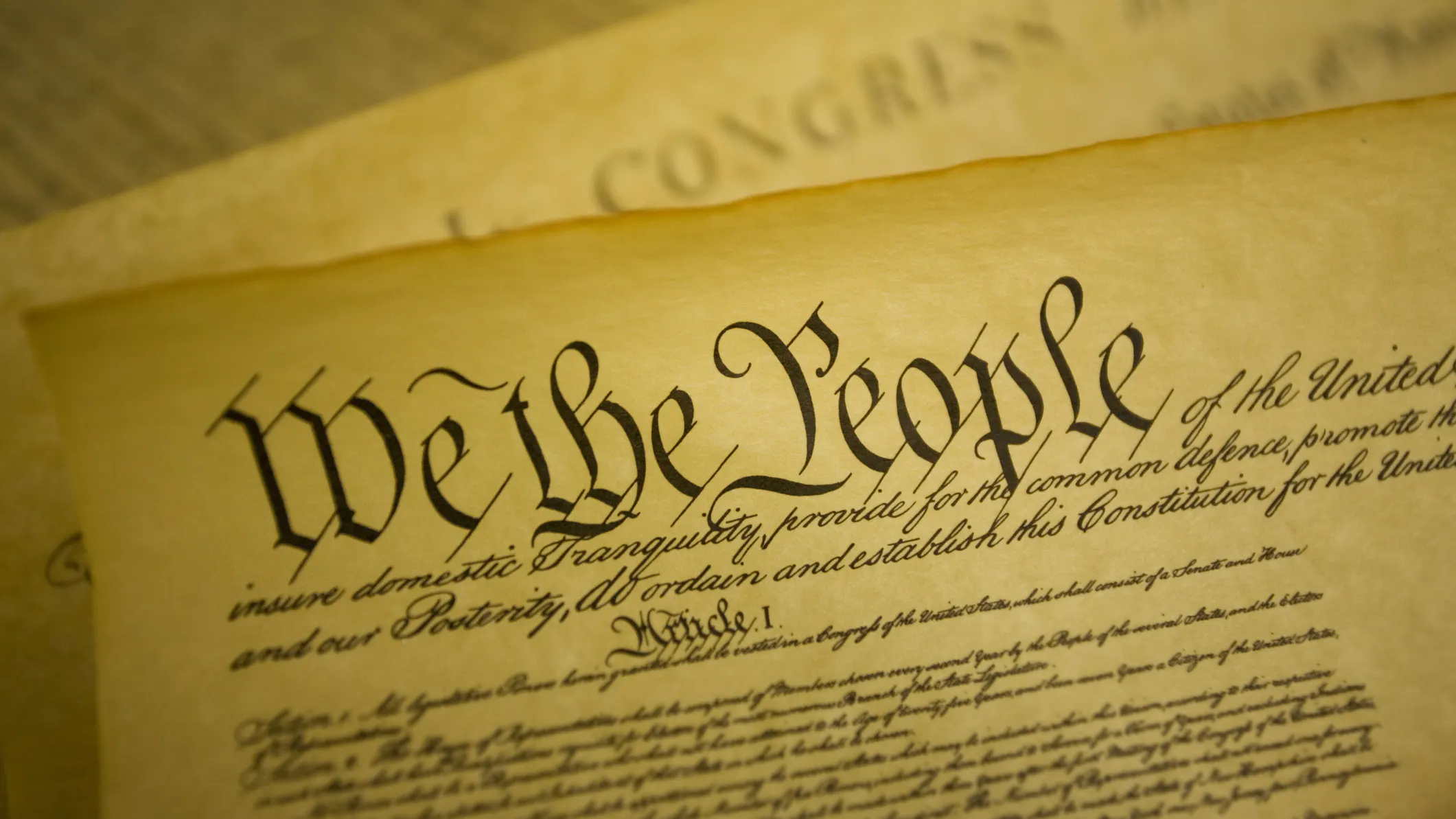Congressional Democrats, who seemed willfully naive blissfully unaware of then-President Barack Obama’s rather expansive interpretation of the War Powers Resolution of 1973 during his strategically disastrous 2011 operation to oust Libyan strongman Muammar al-Qaddafi, suddenly seem to care an awful lot about constitutional norms and separation of powers principles again.
Intellectual inconsistency much?
Specifically, Speaker Nancy Pelosi’s House of Representatives is debating today whether to congressionally impose War Powers Resolution limitations upon President Donald Trump’s unilateral ability to ratchet up militancy with the Islamic Republic of Iran. In their crusade to hamstring the president’s conduct of his foreign policy vis-à-vis the jihadist Iranian regime, House Democrats have even found some libertarian-leaning Republican allies.
But this exercise is misguided, because the War Powers Resolution is, and always has been, unconstitutional.
Let’s start with what the War Powers Resolution, which was passed during the closing stanzas of the Vietnam War, actually does. The statute requires the president to notify Congress within 48 hours of committing armed forces abroad, and it precludes deployed U.S. forces from remaining engaged in “hostilities” abroad for more than 60 days without an affirmative authorization for the use of military force that has passed through Congress. At the time, President Richard Nixon vetoed the bill on constitutional grounds, arguing that the measure would define presidential war powers “in ways which would strictly limit his constitutional authority.” Nonetheless, a two-thirds majority in each congressional chamber overrode the veto.
Nixon’s veto was correct.
The Constitution famously divides foreign affairs powers between the legislative and executive branches. Among other enumerated powers in Article I, Section 8, Congress has the ability to “declare War,” “raise and support Armies,” “provide and maintain a Navy,” “make Rules for the Government and Regulation of the land and naval Forces,” “provide for calling forth the Militia,” and “provide for organizing, arming, and disciplining, the Militia.”
By contrast, Article II of the Constitution provides that “[t]he President shall be Commander in Chief of the Army and Navy of the United States, and of the Militia of the several States, when called into the actual Service of the United States.” The very first clause of Article II also vests the president with “[t]he executive Power” — meaning a “residual” foreign affairs power that encompasses all those powers not expressly delegated to Congress in Article I, Section 8. As legal scholars Saikrishna B. Prakash and Michael D. Ramsey persuasively argued in a 2001 Yale Law Journal article, 18th century English common law had an “ordinary … meaning of executive power” that “included foreign affairs power.”
A careful, line-by-line overview of Congress’s enumerated powers does not actually provide a legislative means that could feasibly justify the War Powers Resolution. The most likely candidate is the Declare War Clause, but that provision happens to be woefully misunderstood by many lawyers and politicians across the ideological spectrum. As John Yoo compellingly laid out in a 2003 University of Chicago Law Review article, “[t]he Declare War Clause simply confers on Congress juridical power to both define the United States’s legal relations with other countries and trigger domestic constitutional authorities during wartime.” It is the president of the United States, under Article II’s Commander in Chief Clause, who is actually responsible for initiating and conducting hostilities. Congress can then intervene to halt a president it views as a reckless warmonger using the manifold tools it does have at its disposal: Decreasing the size of the Pentagon’s budget, going line item-by-line item and removing various offensive-oriented materiel from the Department of Defense’s arsenal, or using its more general power of the purse to defund a war effort in its entirety (as eventually happened with Vietnam).
This interpretation of the Declare War Clause should not be nearly as controversial as it is. At the 1787 constitutional convention, the Framers actually conscientiously substituted out “make War” with “declare War.” In so doing, James Madison famously explained to Elbridge Gerry that it was imperative to leave to the president the “power to repel sudden attacks.” This ought to make a great deal of sense; as Alexander Hamilton would explain only six months after the constitutional convention in The Federalist No. 70, “[d]ecision, activity, secrecy, and despatch will generally characterize the proceedings of one man in a much more eminent degree than the proceedings of any greater number.”
Finally, in Article I, Section 10, the Constitution precludes a state from “engag[ing] in War, unless actually invaded, or in such imminent Danger as will not admit of delay.” The Framers were therefore aware of multiple verbs — “make” and “engage” — that could have clearly conveyed the meaning of an initiation of hostilities. But they didn’t use those words, and they didn’t use them for a reason. The Framers understood that there was great merit to leaving decisions such as the commencement of hostilities to one man, and not to a fractious Congress.
To reiterate, Congress already has a number of tools at its disposal to push back against a crusading commander-in-chief. As Andrew McCarthy wrote this week at Fox News, “No statute is needed to provide Congress with the power to frustrate unauthorized presidential war-making. The Constitution empowers the legislature to do so by simply refusing to appropriate funds for military action.” But the Declare War Clause means something fundamentally different than what many believe it does.
The War Powers Resolution may or may not be good policy. But it does not matter, because it runs afoul of the Constitution’s carefully calibrated separation of powers.

.png)
.png)

